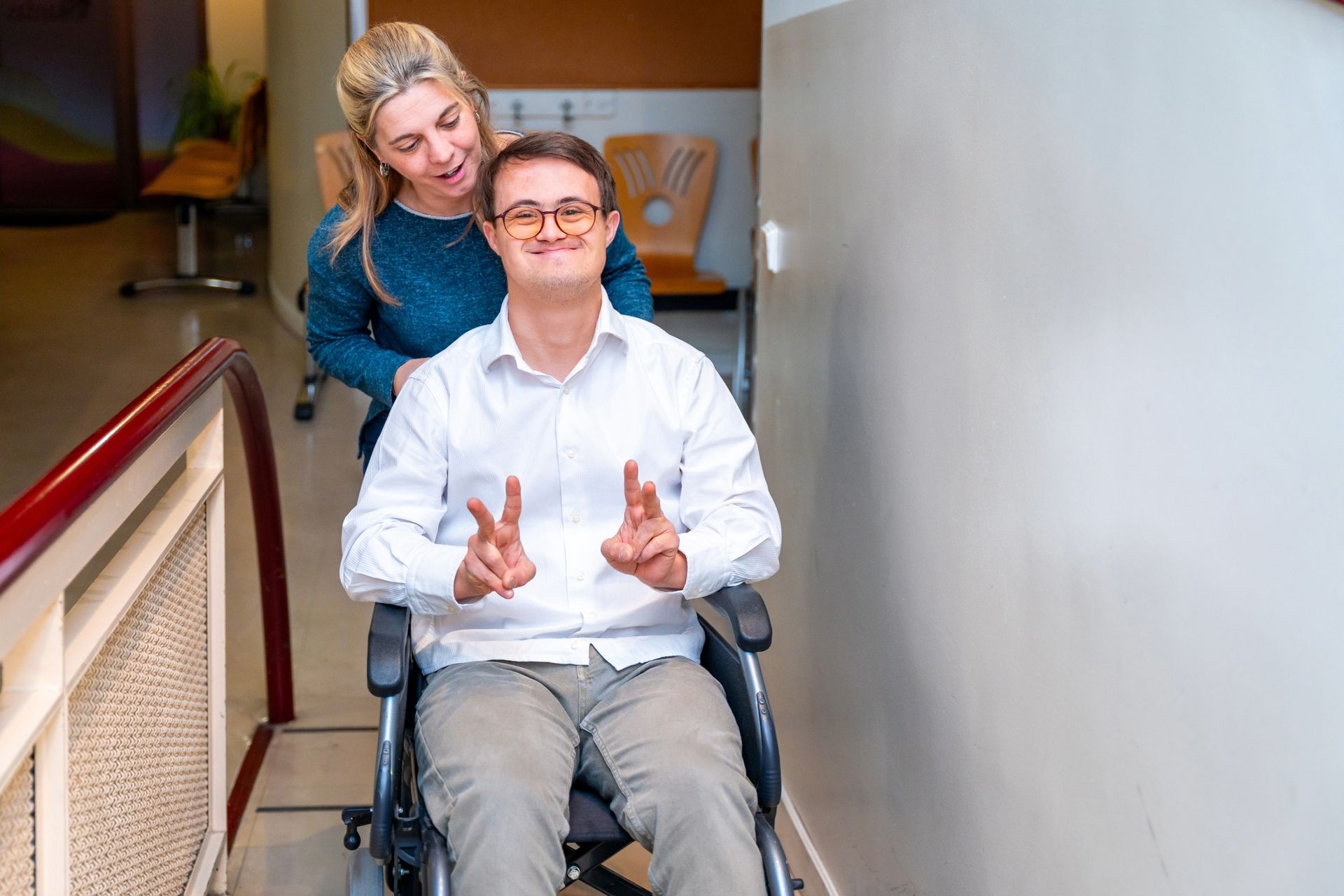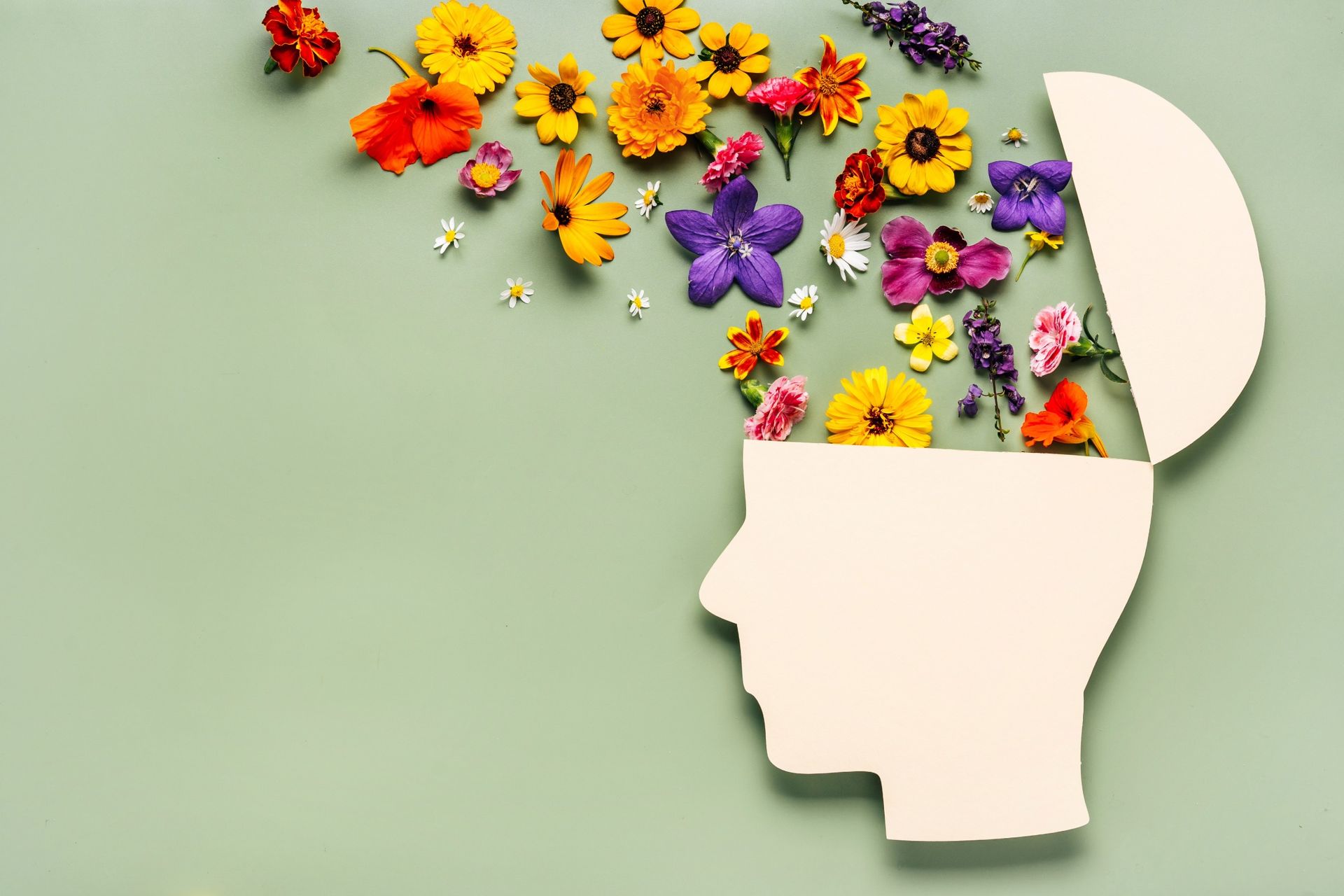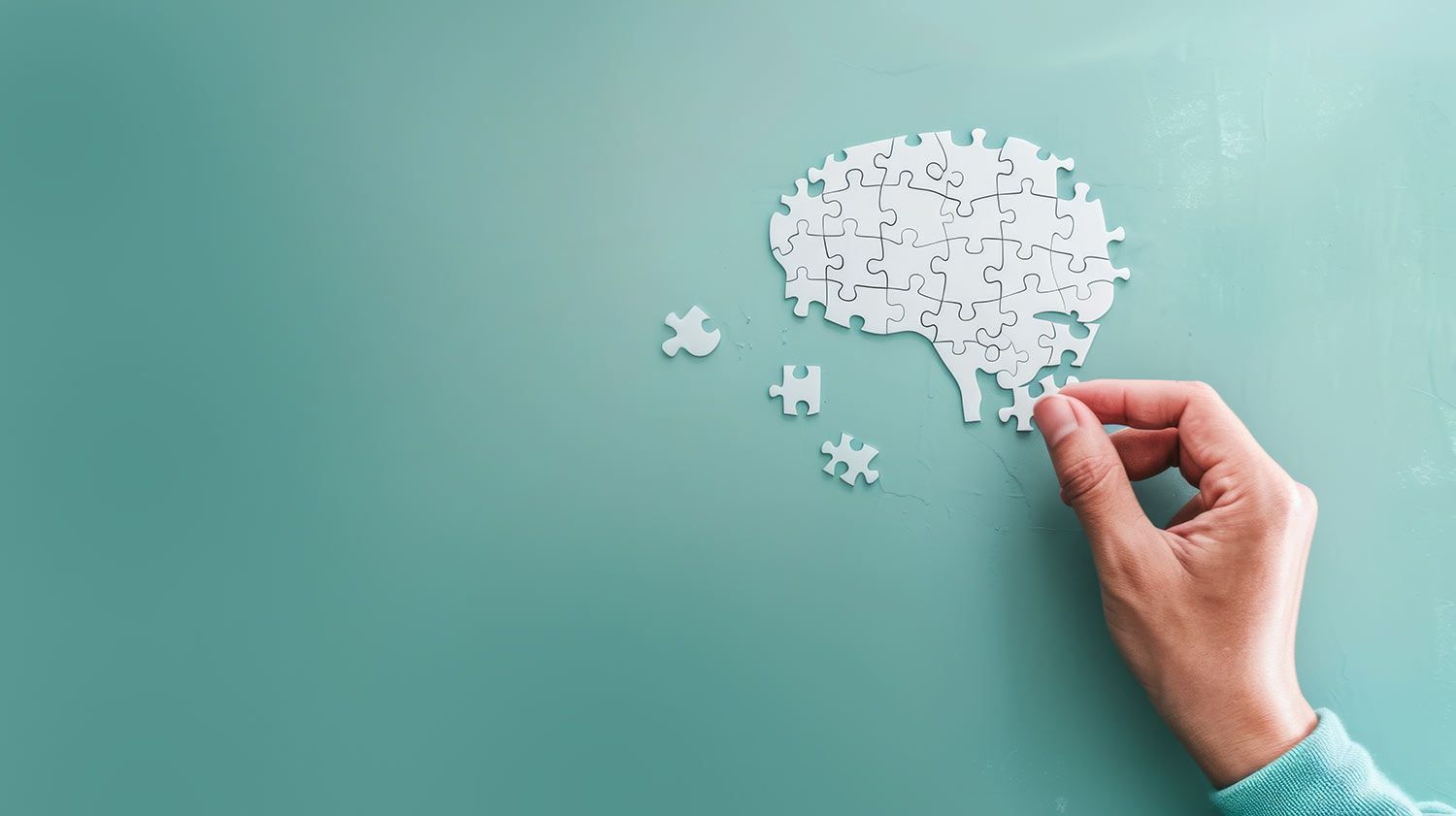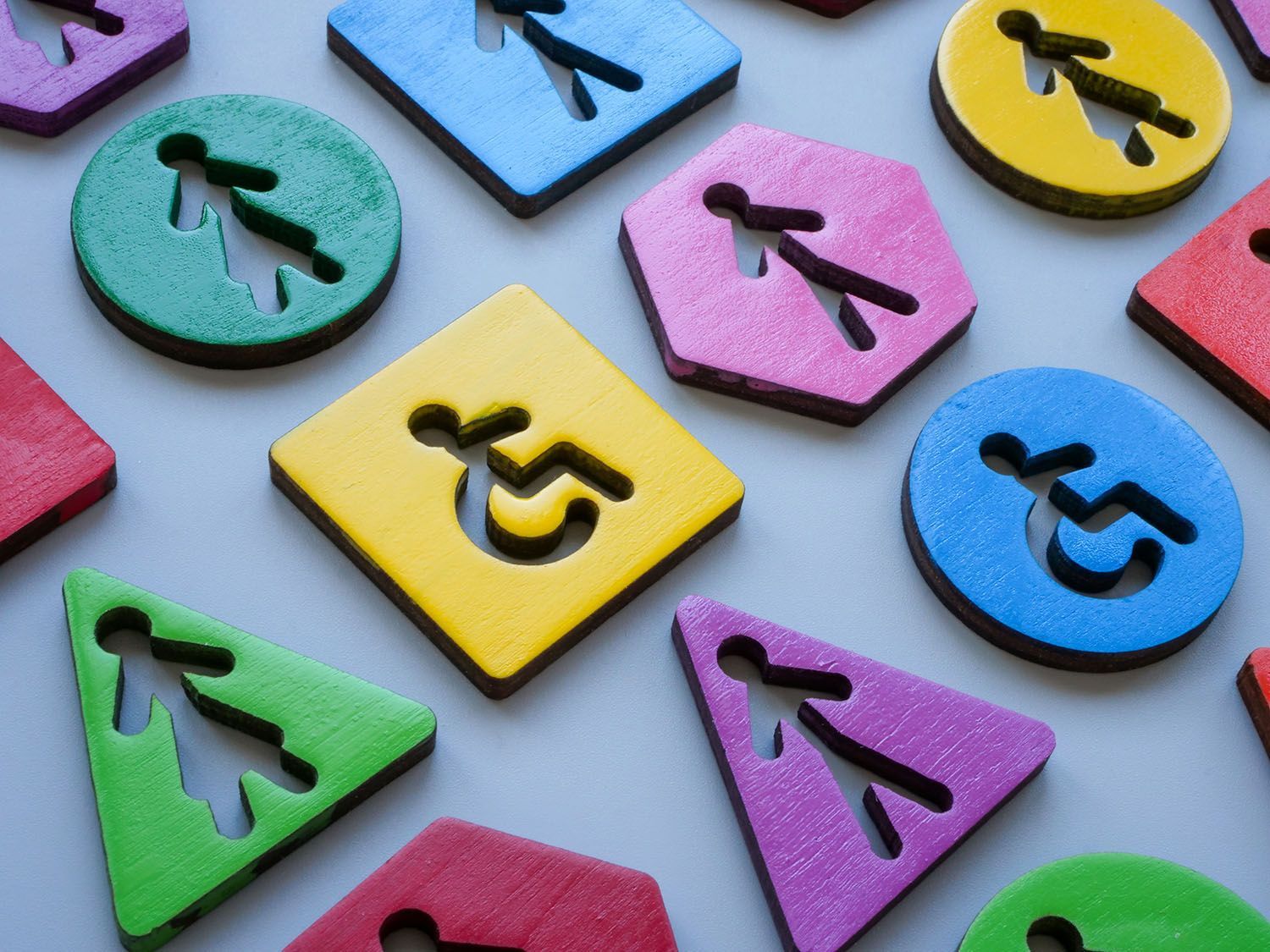Have a Question?
Psychosocial Occupational Therapy: Building Confidence & Balance in Everyday Life

When mental health challenges affect daily routines or social connection, it can feel as though life has lost its balance. Psychosocial occupational therapy helps bring that balance back.
At PotentialMe, we support people living with psychosocial disabilities linked to mental health conditions through psychosocial occupational therapy. Our mental health occupational therapists focus on meaningful progress to help you build confidence, strengthen daily skills, and find balance in the parts of life that matter most.
What Is Psychosocial in Occupational Therapy?
In occupational therapy, psychosocial refers to the connection between a person’s mental health, emotions, and social wellbeing. And how these factors influence their ability to live independently and engage in daily life.
Psychosocial occupational therapy focuses on the whole person. It looks at how thoughts, feelings, and environments interact to shape behaviour, motivation, and participation. By addressing both the psychological (mental and emotional) and social (relationships and community) aspects of life, occupational therapists help individuals improve function, resilience, and self-worth.
At PotentialMe, this means supporting participants to strengthen practical life skills while also nurturing emotional wellbeing, confidence, and connection with others.
What Is Psychosocial Occupational Therapy?
Psychosocial occupational therapy helps people manage the impact of mental health conditions and psychosocial disabilities on daily functioning. It focuses on meaningful participation, enabling individuals to take part in the activities that bring structure, purpose, and connection to life.
At PotentialMe, we take a person-centred, recovery-oriented approach to mental health occupational therapy, guided by the occupational therapy practice framework. This framework provides the foundation for understanding each participant’s mental health needs, assessing daily function, and determining treatment options that promote balance and wellbeing.
Our therapists use an occupational therapy balanced approach: one that combines practical skill development with emotional and social support. We work with people living with a range of conditions, including anxiety disorders, mood disorders, and complex psychosocial challenges.
When planning support, we select treatment strategies based on your individual goals, strengths, and environment. These treatment strategies may include building routines, developing coping skills, or supporting re-engagement with work, study, or community life.
At PotentialMe, we focus on what matters most to you. Our occupational therapists collaborate with you to build confidence, stability, and independence at a pace that feels comfortable and achievable.
Who We Support With Our Mental Health Services
Psychosocial occupational therapy includes a wide range of supports designed to build confidence, structure, and participation in everyday activities.
Our occupational therapists provide support to NDIS participants and individuals living with mental illness and psychosocial disabilities, including those with primary diagnoses such as:
- Anxiety and depression
- PTSD and complex trauma
- Schizophrenia and psychotic disorders
- Bipolar disorder
- Personality disorders
- Dual diagnoses involving substance use disorders and other mental conditions
We recognise that every person’s situation is different, and selecting treatment strategies depends on your goals, support network, and lifestyle. Our therapists focus on practical approaches that promote independence and meaningful participation, with the eventual outcomes aimed at improving confidence, stability, and quality of life.
We also work with individuals who experience psychosocial challenges alongside other disabilities, such as Autism Spectrum Disorder or Intellectual Disability.
How Psychosocial Occupational Therapists Can Help

Psychosocial occupational therapy at PotentialMe is practical, supportive, and focused on capacity building. We help participants strengthen daily living skills and emotional resilience to improve their independence and quality of life.
Our therapists draw on strong therapeutic interpersonal skills, clinical reasoning skills, and therapeutic interaction skills to build trust and understanding throughout the support process. This helps participants feel safe, heard, and motivated to engage in meaningful change.
We also understand the complexities of primary diagnosis coverage under the NDIS and how different psychosocial conditions influence daily functioning. Our approach ensures that assessments and interventions align with your diagnosis, support needs, and individual goals.
Common areas of support include:
Daily Living and Independent Skills
Building confidence in everyday activities such as cooking, budgeting, managing time, and personal care. Our OTs may also recommend small environmental adjustments, like improving lighting, reducing clutter, or creating calmer spaces, to make daily activities easier and support your wellbeing.
Emotional Regulation & Coping Strategies
Developing tools to manage stress, understand emotions, and respond to challenges in positive ways, using techniques such as mindfulness and reframing unhelpful thought patterns.
Motivation & Routine
Creating structured routines that support consistency, focus, and a sense of accomplishment.
Social & Communication Skills
Improving communication, problem-solving, and relationship-building skills for greater social participation.
Community & Social Connection
Supporting involvement in social groups, volunteer work, or community events to strengthen inclusion and belonging.
Employment or Education Readiness
Providing guidance and skill development for returning to study or employment while addressing barriers that affect participation.
Functional Capacity Assessments
We provide detailed NDIS-aligned assessments and reports that identify your functional strengths, support needs, and personal goals. These reports can support access requests, plan reviews, and funding updates.
How Can an OT Help with Psychosocial Disability?
Occupational therapists play a key role in helping people with psychosocial disabilities live more independently and participate in everyday life. At PotentialMe, our mental health occupational therapy specialists support individuals to rebuild confidence, develop practical skills, and engage with their communities in meaningful ways.
Before therapy begins, we often complete an occupational therapy assessment to understand each person’s strengths, challenges, and goals. This forms the foundation of your support plan and helps us tailor strategies that fit your daily life. Through this process, we can demonstrate effective occupational therapy, showing how practical interventions lead to real, measurable improvements in participation and wellbeing.
At PotentialMe, our OTs help participants:
- Identify barriers that affect daily functioning or independence.
- Build coping strategies for stress, anxiety, and low motivation.
- Strengthen problem-solving and self-management skills.
- Reconnect with social and community supports.
- Develop strategies for employment, study, or volunteering.
Our work is grounded in recovery-oriented practice, recognising that progress looks different for every person. We focus on ability and potential, empowering participants to rediscover purpose, identity, and control over their own lives.
Why Choose PotentialMe
Our team of dedicated mental health occupational therapists has extensive experience working with individuals living with psychosocial disability. We take pride in offering respectful, compassionate, and evidence-based care that adapts to your goals and lifestyle.
Our approach is guided by the occupational therapy practice framework, which draws on evidence-based occupational and psychosocial theories to understand the connection between mental wellness, environment, and everyday function. This framework supports a holistic view of wellbeing, recognising that meaningful participation often depends on both practical skills and emotional balance.
In addition to conventional methods, our therapists may integrate elements of complementary and integrative health approaches, such as mindfulness, relaxation, and sensory regulation techniques, to support emotional regulation and daily function.
With PotentialMe, you can expect:
- Mental health OTs with experience across psychosocial disability.
- Trauma-informed, person-centred support that values your lived experience.
- Clear communication with your support team, including coordinators and recovery coaches.
- NDIS-compliant assessments and professional reports.
- Flexible sessions: at home, in the community, or online via telehealth.
Building Confidence & Balance in Everyday Life
Progress looks different for everyone. What matters is having the right support to make each day feel more manageable and meaningful.
At PotentialMe, we work with you to build structure, stability, and the confidence to live life on your own terms. Every session is practical, focused, and shaped around what matters most to you: your goals, your comfort, your pace.
If you or someone you support is living with a psychosocial disability or mental health condition, contact PotentialMe today to learn how our psychosocial occupational therapy services can support your NDIS journey and everyday wellbeing.
We hope you enjoyed reading this blog.
PotentialMe specialises in Mental Health Occupational Therapy, and also offer other NDIS Support Services such as Australia-wide Plan Management services and personalised Support Work, matching our support workers to participants across Greater Melbourne.








